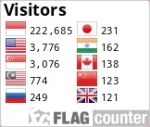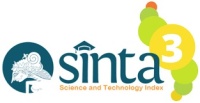Hasil Review Trade Policy Review Body WTO sebagai Unilateral Act of an International Organization
DOI:
https://doi.org/10.26623/julr.v6i2.6981Keywords:
Good Faith, International Organization, Review, Trade, Unilateral Act, Iktikad Baik, Organisasi Internasional, Perdagangan, Tindakan UnilateralAbstract
This seeks to provide an understanding concerning the Trade Policy Review Body (TPRB) review perceived as a unilateral act of an international organization. The article is written based on the normative method through the application of doctrinal, conceptual, and case approaches. Furthermore, this article is also written by gathering primary and secondary legal sources. The article herein consists of three parts. The first part discusses the unilateral act as the source of international law as one of the international law norms outside the Article 38 paragraph (1) ICJ Statute. Meanwhile, the second part explains the weaknesses of TPRB which caused this organ unable to work under its effective means. Furthermore, the third part explains how the matters under the TPRB review outcome shall be conducted so that such a product can be qualified as a unilateral act applicable by WTO members under good faith. Based on the three discussions therein, this article suggests that the TPRB review outcome shall be perceived as a unilateral act of an international organization. Such perception can be actualized by applying imperative sentences in adopting the review outcome that will be issued for the reviewed member.
Penelitian yang dijelaskan pada artikel ini bertujuan untuk menyediakan pemahaman mengenai bagaimana hasil review dari Trade Policy Review Body (TPRB) dapat dikualifikasi sebagai tindakan sepihak oleh organisasi internasional (unilateral act of an international organization). Artikel ini ditulis dengan menerapkan metode penelitian normatif melalui pendekatan doktrinal, konseptual dan kasus. Adapun bahan hukum yang digunakan yaitu bahan hukum primer dan sekunder. Artikel ini terdiri dari tiga bagian. Bagian pertama membahas tentang unilateral act sebagai salah satu hukum internasional yang tidak diatur di dalam Article 38 paragraph (1) ICJ Statute. Bagian kedua dari artikel ini kemudian menjelaskan tentang kelemahan dari TPRB yang membuat organ ini tidak dapat bekerja dengan efektif untuk saat ini. Kemudian bagian ketiga menjelaskan tentang kalimat yang harus digunakan dalam menyusun materi muatan hasil review TPRB agar produk tersebut dapat menjadi tindakan unilateral yang harus diterapkan oleh anggota WTO dengan iktikad baik. Berdasarkan tiga pembahasan tersebut, artikel ini menyarankan agar hasil review TPRB harus dipandang sebagai tindakan unilateral. Pandangan tersebut dapat diwujudkan melalui diterapkannya penyusunan kalimat imperatif pada laporan yang akan diterbitkan kepada anggota yang direview.
References
Anderson, Kym. “Trade-Related Food Policies in a More Volatile Climate and Trade Environment.” Food Policy 109 (2022): 102253.
Argent, Pierre d’. International Law Textbook: Applying International. Louvain : UC Louvain & edX, 2021.
———. International Law Textbook: Making International Law Part II. Louvain : UC Louvain & edX, 2021.
———. International Law Textbook: Upholding Peace. Louvain : UC Louvain & edX, 2021.
Bossche, Peter van den, and Zdouc, Werner. The Law and Policy of the World Trade Organization, 2022.
Cararro, Valentina, Thomas Conzelmann, and Hortense Jongen. “Fear of Peers? Explaining Peer and Public Shaming in Global Governance.” Cooperation and Conflict 54, no. 3 (2019): 335–55.
Cheng, Yi, Haimeng Liu, Shaobin Wang, Xuegang Cui, and Qirui Li. “Global Action on SDGs: Policy Review and Outlook in a Post-Pandemic Era.” Sustainability 13, no. 11 (2021): 6461.
Chigowe, Lloyd T. “Allies or Foes? A Review of the Relationship between the International Criminal Court and the United Nations Security Council.” Netherlands International Law Review 67 (2020): 403–25.
Dematar, Dewangga Dura. “WTO’s Trade Policy Review Mechanism (TPRM) and Indonesia’s Compliance in Agriculture Sector.” Global South Review 1, no. 1 (2019): 82–96.
Fahrazi, Mahfud. Hukum Dagang Internasional: Optimalisasi Sistem Hukum Tindakan Pengamanan Perdagangan (Safeguard) Di Indonesia. Bandung : Refika Aditama, 2020.
Hoekman, Bernard M, and Laura Puccio. “EU Trade Policy: Challenges and Opportunities,” 2019.
Hollis, Duncan B. “Preface and Introduction to the Second Edition of the Oxford Guide to Treaties,” 2020.
Ibragimov, K. “Some Features of Modern Trends in Legal Research.” Science and Innovation 1, no. C5 (2022): 65–69.
Jimly Asshidiqie. Teori Hierarki Norma Hukum . Jakarta : Konstitusi Press, 2020.
Jones, Emily, and Christopher Adam. “New Frontiers of Trade and Trade Policy: Digitalization and Climate Change.” Oxford Review of Economic Policy 39, no. 1 (2023): 1–11.
Kahombo, Balingene. “The Western Sahara Cases before the Court of Justice of the European Union and International Law.” Chinese Journal of International Law 18, no. 2 (2019): 327–52.
Karlas, Jan, and Michal Parízek. “The Process Performance of the WTO Trade Policy Review Mechanism: Peer‐Reviewing Reconsidered.” Global Policy 10, no. 3 (2019): 376–84.
Khademi Adel, Tahereh, Mohsen Modir, and Mehdi Ravanshadnia. “An Analytical Review of Construction Law Research.” Engineering, Construction and Architectural Management 29, no. 5 (2022): 1931–45.
Kim, Hyun Jung. “Inducing State Compliance with International Fisheries Law: Lessons from Two Case Studies Concerning the Republic of Korea’s IUU Fishing.” International Environmental Agreements: Politics, Law and Economics 19 (2019): 631–45.
Kuenzel, David J. “Do Trade Flow Respond to Nudges? Evidence from the WTO’s Trade Policy Mechanism.” WILEY 27, no. 3 (2019): 735–64.
Lee, Gaeun, Min Gyo Koo, and Eunhee Kim. “9.Lee-Kim-Koo_When-Text-Mining-Meets-WTO’s-Trade-Policy-Review.” Journal of International and Area Studies 28, no. 1 (2021): 163–78.
Lowande, Kenneth, and Jon C Rogowski. “Presidential Unilateral Power.” Annual Review of Political Science 24 (2021): 21–43.
Lundstedt, Tero. “From Kosovo to Crimea: The Legal Legacies of the Socialist Federal Dissolutions,” 2020.
Mälksoo, Lauri. “Illegal Annexation, State Continuity and Identity: Concepts and Controversies.” Illegal Annexation and State Continuity, 2022, 11–43.
Matsumoto, Shoji. Jus Cogens and the Right to Self-Determination: Falsifiability of Tests. Policy Center for the New South, 2020.
Mishra, Sadhna. “Security Council WPS Agenda: Measuring Progress and Challenges.” Multidisciplinary Current Research, 2022, 15.
Munir Fuady. Teori Besar Dalam Hukum (Grand Theories) . Jakarta: Kencana , 2020.
Nwoke, Uchechukwu. “Imposition of Trade Tariffs by the USA on China: Implications for the WTO and International Trade Law.” Journal of International Trade Law and Policy 19, no. 2 (2020): 69–84.
Pérez, Óscar Méndez. “Kosovo at Risk: From Local to Global.” Master in Geopolitics and Strategic Studies 19, no. 20 (n.d.): 1–25.
Roland Holst, Rozemarijn J. “Taking the Current When It Serves: Prospects and Challenges for an ITLOS Advisory Opinion on Oceans and Climate Change.” Review of European, Comparative & International Environmental Law, 2023.
Rosello, Mercedes. “IUU Fishing as Compliance Mechanism.” IUU Fishing as a Flag State Accountability Paradigm, 2021, 100–126.
Schabas, William A. “Literature Review Article: The International Court of Justice.” The International Court of Justice, 2020.
Schutter, Olivier de. International Human Rights Law Textbook: What Are Human Rights? Louvain: edX & UC Louvain, 2021.
Simbolon, Putu George Matthew, and Angel Damayanti. “Indonesian Trade Policy in Adjusting the 2020 WTO’s Trade Policy Review.” Jurnal Hubungan Internasional 12, no. 1 (June 2023): 76–87. https://doi.org/10.18196/jhi.v12i1.18038.
Steinfatt, Karsten. “Trade Policies for a Circular Economy: What Can We Learn from WTO Experience?,” 2020.
Szpala, Marta. “Serbia-Kosovo Negotiations–Playing for Time under Pressure from the West. OSW Commentary Number 281| 21.08. 2018,” 2018.
Tong, Ye. “Literature Review in International Trade Forecasting Based in Machine Learning Method.” In SHS Web of Conferences, 154:03025. EDP Sciences, 2023.
Tulu, Diriba Adugna, and Y A Alemu. “A Critique on the Concept of Jus Cogens and Its Substantive Content in International Law: A Brief Overview.” International Affairs and Global Strategy 84 (2020).
Warouw, Adolf. “Sistem Perdagangan Multilateral Dalam Kerangka WTO Suatu Observasi Terhadap ‘Rule-Based System.’” Indonesian Journal of International Law 1, no. 2 (July 2004). https://doi.org/10.17304/ijil.vol1.2.404.
Wilson, Gary. “Tamsin Phillipa Paige, Petulant and Contrary: Approaches by the Permanent Five Members of the UN Security Council to the Concept of ‘Threat to the Peace’under Article 39 of the UN Charter: Leiden & Boston: Brill Nijhoff, 2019, 330pp, $166 Hardback, ISBN: .” Liverpool Law Review 42 (2021): 497–500.
Wolfe, Robert. “Exposing Governments Swimming Naked in the COVID-19 Crisis with Trade Policy Transparency (and Why WTO Reform Matters More than Ever).” COVID-19 and Trade Policy: Why Turning Inward Won’t Work, 2020, 165.
Xinxiang Shi. “The Relationship between General Principles of International Law and Article 38(1) of the ICJ Statute: A Law of the Sea Perspective.” Marine Policy 148, no. 105427 (2023): 1–10.
Young, Margaret A, and Hilary Charlesworth. “Australian Encounters with the Advisory Jurisdiction of the International Court of Justice.” Melbourne Journal of International Law 21, no. 3 (2021): 698–725.
Zaki, Muhammad Reza Syarifudiin. Hukum Perdagangan Internasional. Jakarta: Kencana, 2021.
Downloads
Additional Files
Published
Issue
Section
License
The journal holds the copyright for each article published with work licensed simultaneously under a Creative Commons Attribution 4.0 International License, which allows others to share the work with an acknowledgment of the authorship and early publication of the work in this journal.










